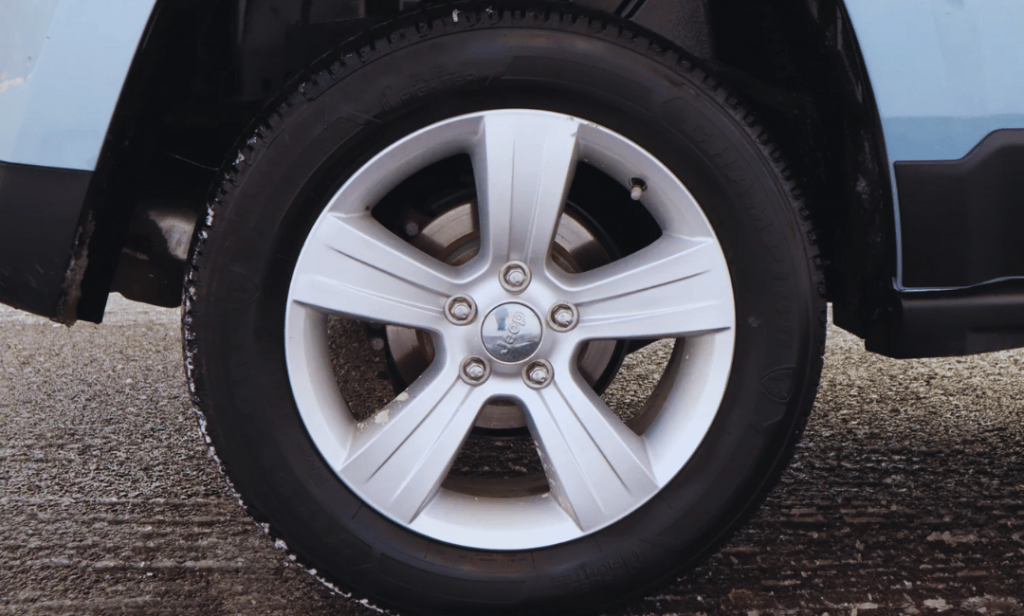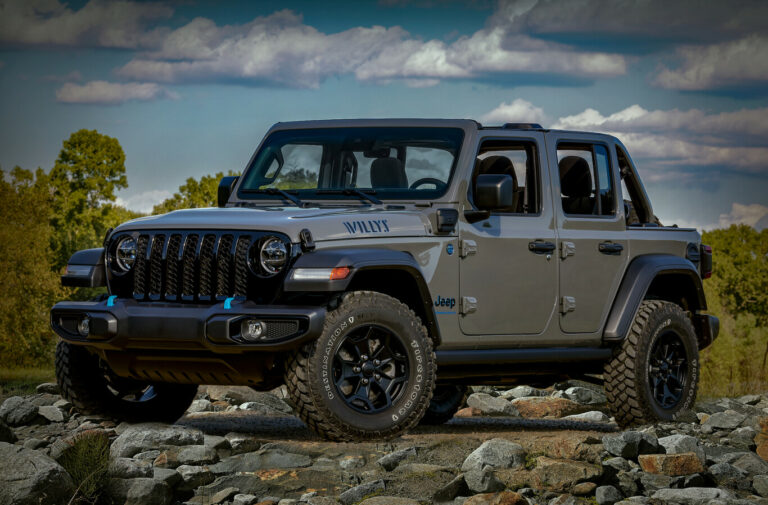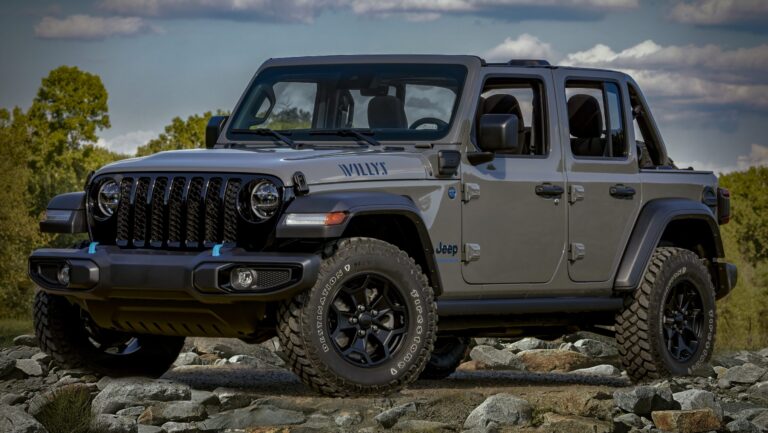Jeep Patriot Wheels And Tires For Sale: A Comprehensive Guide to Upgrading and Maintaining Your Ride
Jeep Patriot Wheels And Tires For Sale: A Comprehensive Guide to Upgrading and Maintaining Your Ride jeeps.truckstrend.com
The Jeep Patriot, a compact SUV known for its rugged looks, affordability, and surprising off-road capability (especially in Freedom Drive II trim), has been a reliable companion for many drivers. Whether you use your Patriot for daily commuting, weekend adventures, or tackling light trails, the wheels and tires are arguably the most critical components connecting your vehicle to the road. They directly influence safety, performance, fuel efficiency, ride comfort, and even the vehicle’s aesthetic appeal.
Finding the right "Jeep Patriot Wheels And Tires For Sale" is more than just a transaction; it’s an investment in your vehicle’s longevity and your driving experience. From replacing worn-out factory sets to upgrading for enhanced performance or a bolder look, understanding the myriad options, specifications, and considerations is paramount. This comprehensive guide will navigate you through everything you need to know about purchasing, maintaining, and optimizing the wheels and tires for your Jeep Patriot, ensuring you make an informed decision.
Jeep Patriot Wheels And Tires For Sale: A Comprehensive Guide to Upgrading and Maintaining Your Ride
Understanding Your Jeep Patriot’s Wheel and Tire Needs
Before diving into the market, it’s essential to grasp the fundamental specifications and requirements for your Jeep Patriot. Knowing these details will prevent compatibility issues and ensure optimal performance.
OEM Specifications and Their Importance:
The Original Equipment Manufacturer (OEM) specifications are your baseline. For the Jeep Patriot, common factory wheel sizes ranged from 16-inch to 18-inch diameters, with specific bolt patterns and offsets.
- Bolt Pattern: The Jeep Patriot typically uses a 5×114.3mm (5×4.5 inch) bolt pattern. This means there are five lug holes, and the circle they form has a diameter of 114.3 millimeters. Sticking to this is non-negotiable for wheel fitment.
- Wheel Diameter: Common factory diameters include 16", 17", and 18". While you can deviate slightly (e.g., going from 16" to 17"), significant changes require careful consideration of tire sidewall height to maintain overall diameter.
- Wheel Width: Factory widths usually range from 6.5" to 7.5". Matching tire width to wheel width is crucial for proper tire bead seating and performance.
- Offset: This measurement (positive, negative, or zero) determines how far the wheel sits inward or outward from the hub. Incorrect offset can lead to rubbing issues with suspension components or fender wells, or cause the wheels to stick out too far. Patriots typically use a positive offset (e.g., +38mm to +42mm).
- Center Bore: This is the hole in the center of the wheel that fits over the vehicle’s hub. The Patriot’s center bore is 67.1mm. Aftermarket wheels might have a larger center bore and require hub-centric rings to ensure a snug fit and prevent vibrations.

Impact of Incorrect Sizing:
Deviating too far from OEM specifications without proper research can lead to:

- Safety Hazards: Unstable handling, reduced braking efficiency.
- Mechanical Stress: Premature wear on bearings, suspension components, and steering parts.
- Performance Issues: Incorrect speedometer readings, ABS/Traction Control malfunctions.
- Rubbing: Tires contacting fender wells or suspension components, especially during turns or over bumps.
![]()
Types of Wheels Available for the Jeep Patriot
When searching for "Jeep Patriot Wheels And Tires For Sale," you’ll encounter a variety of wheel options, each with its own advantages.
- OEM Replacement Wheels: These are identical to the wheels that came with your Patriot from the factory. They offer a perfect fit and maintain the original look. You can find them new from dealerships, or used through various marketplaces.
- Aftermarket Wheels: This category offers the most variety in terms of style, material, and finish.
- Alloy Wheels: The most common type, made from aluminum alloy. They are lighter than steel wheels, which can slightly improve fuel economy, braking, and suspension performance. They come in countless designs and finishes (machined, painted, chrome, black, bronze, etc.).
- Steel Wheels: Heavier and less aesthetically pleasing than alloy wheels, but they are very durable, more resistant to bending, and often more affordable. They are a popular choice for winter tires or for those seeking a rugged, utilitarian look, especially on off-road builds.
- Brands: Popular aftermarket wheel brands include Fuel Off-Road, Black Rhino, Method Race Wheels, Vision Wheel, and many more, offering styles from sleek street designs to aggressive off-road looks.
- Used vs. New Wheels:
- New Wheels: Offer peace of mind with no prior damage, a full warranty, and a pristine finish.
- Used Wheels: Can be significantly cheaper. However, inspect them thoroughly for cracks, bends, curb rash, or previous repairs. Always buy from a reputable seller if possible, and ideally, have them checked by a professional before mounting tires.
Choosing the Right Tires for Your Jeep Patriot
Tires are your vehicle’s only contact with the road, making their selection critical for safety and performance. The Patriot’s versatile nature means you have several tire categories to consider.
-
Tire Categories:
- All-Season Tires: The most common choice for daily drivers. They offer a balanced performance across various conditions, including light snow, and good tread life. Ideal for most Patriot owners.
- All-Terrain (A/T) Tires: Designed for drivers who venture off-road occasionally. They feature more aggressive tread patterns for better grip on dirt, gravel, and mud, while still providing acceptable on-road manners. These are a popular upgrade for Patriot owners seeking a more rugged look and capability.
- Winter/Snow Tires: Specifically engineered for cold temperatures (below 45°F/7°C), snow, and ice. They use specialized rubber compounds and tread designs for superior grip in harsh winter conditions. If you live in an area with significant winter weather, a dedicated set is highly recommended.
- Highway (H/T) Tires: Optimized for on-road performance, offering a quiet ride, good fuel economy, and long tread life. Less common for the Patriot, but an option for those who prioritize pure highway comfort.
-
Understanding Tire Specifications:
- Size (e.g., 215/60R17):
- 215: Tread width in millimeters.
- 60: Aspect ratio (sidewall height as a percentage of width).
- R: Radial construction.
- 17: Wheel diameter in inches.
- Load Index: A numerical code indicating the maximum weight the tire can support. Always match or exceed the vehicle’s OEM load index.
- Speed Rating: An alphabetical code indicating the maximum speed the tire can safely sustain. Match or exceed OEM.
- UTQG Ratings (Uniform Tire Quality Grading):
- Treadwear: A comparative rating based on wear rate; higher numbers indicate longer tread life.
- Traction: Grades (AA, A, B, C) indicate the tire’s ability to stop on wet pavement.
- Temperature: Grades (A, B, C) indicate the tire’s resistance to heat generation.
- Size (e.g., 215/60R17):
-
Top Tire Brands for Jeep Patriot: Reputable brands known for quality and performance include Michelin, Goodyear, Bridgestone, Continental, Pirelli, Falken, Cooper, BFGoodrich, and Toyo. Researching specific models within these brands is key.
Where to Find Jeep Patriot Wheels and Tires For Sale
The market for "Jeep Patriot Wheels And Tires For Sale" is diverse, offering options for every budget and preference.
-
Online Retailers:
- Dedicated Tire & Wheel Websites: Tire Rack, Discount Tire Direct, SimpleTire, RevZilla (for specific vehicle parts). These sites offer extensive selections, detailed specifications, customer reviews, and often free shipping. They also provide comprehensive fitment guides.
- General E-commerce Platforms: Amazon, eBay. Good for finding specific OEM replacements or unique aftermarket options, but require more careful verification of seller reputation and product authenticity.
- Pros: Huge selection, competitive pricing, convenient delivery.
- Cons: Cannot physically inspect before buying, potential for shipping damage, need to arrange separate installation.
-
Local Tire Shops & Automotive Retailers:
- National Chains: Discount Tire, Pep Boys, Mavis Discount Tire, Les Schwab.
- Independent Shops: Local mom-and-pop tire shops.
- Pros: Professional advice, expert installation, balancing, alignment services, opportunity to see products in person, warranty support.
- Cons: Potentially higher prices than online, limited selection compared to online giants.
-
Used Marketplaces:
- Online Classifieds: Craigslist, Facebook Marketplace.
- Local Junkyards/Salvage Yards: Can be a goldmine for OEM wheels.
- Pros: Significant cost savings, especially on wheels.
- Cons: High risk of purchasing damaged or unsafe items (especially used tires), no warranty, requires careful inspection. Caution: Generally, purchasing used tires is not recommended due to unknown history and potential internal damage that is not visible.
-
Jeep Dealerships:
- Pros: Guaranteed OEM parts, expert knowledge specific to your vehicle.
- Cons: Typically the most expensive option.
Important Considerations When Buying Wheels and Tires
Making an informed decision goes beyond just price.
- Budget: Determine your spending limit. New tires and wheels can be a significant investment. Consider financing options if available.
- Driving Habits & Environment: Are you a city driver, highway commuter, or do you frequently encounter snow or off-road conditions? Your driving style should dictate your tire choice.
- Aesthetics vs. Performance: Do you prioritize a specific look, or are you focused purely on optimal performance and ride quality?
- Installation and Balancing: Always ensure wheels are properly balanced after tires are mounted. This prevents vibrations and ensures even tire wear. Professional installation is highly recommended.
- Tire Pressure Monitoring System (TPMS): If your Patriot is equipped with TPMS (most models from 2008 onwards), new wheels may require new TPMS sensors or transferring your old ones. New sensors will likely need to be programmed to your vehicle.
- Warranty: Understand the warranty terms for both wheels (structural, finish) and tires (tread life, road hazard).
- Return Policy: Especially important for online purchases in case of fitment issues or defects.
- Wheel Offset and Backspacing: If you’re going for aftermarket wheels, confirm these measurements with the seller or a professional to ensure proper fitment and avoid rubbing.
- Lift Kits: If you plan to install significantly larger tires (e.g., 29" or 30" overall diameter), a small lift kit (e.g., 2-inch) may be necessary to prevent rubbing.
Tips for Maintaining Your New Wheels and Tires
Proper maintenance extends the life and performance of your wheels and tires.
- Regular Tire Pressure Checks: Maintain recommended tire pressure (found on your driver’s side door jamb placard). Incorrect pressure leads to uneven wear, reduced fuel economy, and compromised handling.
- Tire Rotations: Rotate your tires every 5,000-7,500 miles (or as recommended by the tire manufacturer/vehicle manual) to promote even wear across all four tires.
- Wheel Alignment: Have your alignment checked annually or if you notice uneven tire wear, pulling to one side, or a crooked steering wheel.
- Regular Cleaning: Clean your wheels regularly to prevent buildup of brake dust and road grime, which can damage finishes. Use wheel-specific cleaners and brushes.
- Inspect for Damage: Periodically check your tires for cuts, bulges, punctures, or excessive wear. Inspect wheels for cracks, bends, or severe curb rash.
Price Table: Estimated Costs for Jeep Patriot Wheels and Tires For Sale
Please note: Prices are highly variable based on brand, quality, specific model, retailer, and market conditions. These are general estimates for single items unless otherwise specified.
| Item Type | Description | New Price Range (Each) | Used Price Range (Each) | Notes |
|---|---|---|---|---|
| Wheels | ||||
| OEM Steel Wheel (16") | Basic factory replacement, durable | $80 – $150 | $40 – $80 | Often found on base models or as winter wheel sets. |
| OEM Alloy Wheel (16"-18") | Standard factory alloy designs | $150 – $300 | $70 – $150 | Lighter, better aesthetics than steel. Prices vary by diameter and design complexity. |
| Aftermarket Alloy Wheel | Various styles, finishes, and brands (16"-18") | $120 – $400 | $60 – $200 | Wide range depending on brand prestige, design complexity, and material. |
| Tires | Note: Purchasing used tires is generally NOT recommended due to safety concerns and unknown history. Prices below are for new tires. | |||
| All-Season Tire | Standard daily driving, balanced performance | $90 – $180 | N/A | Most common type. Prices vary by brand (e.g., Kumho vs. Michelin). |
| All-Terrain (A/T) Tire | Mild off-road capability, aggressive tread | $130 – $250 | N/A | Popular for a more rugged look and occasional trail use. Brands like BFGoodrich, Falken, Cooper. |
| Winter/Snow Tire | Dedicated cold weather/snow/ice grip | $110 – $220 | N/A | Essential for regions with severe winters. |
| Wheel & Tire Packages | (Set of 4 mounted & balanced) | Prices for packages include wheels, tires, mounting, and balancing. TPMS sensors may be extra. | ||
| Basic Steel & All-Season | 16" steel wheels with budget all-season tires | $600 – $1000 | (Used wheels, new tires) $300 – $600 | An economical option for replacements or winter setups. |
| OEM Alloy & All-Season | 17" or 18" OEM-style alloy with quality tires | $900 – $1800 | (Used wheels, new tires) $500 – $900 | Standard upgrade or replacement for factory setup. |
| Aftermarket & All-Terrain | 16"-17" aftermarket alloys with AT tires | $1200 – $2500+ | (Used wheels, new tires) $700 – $1200 | For enhanced off-road aesthetics and capability. Higher-end brands or larger sizes will push prices higher. |
| Additional Costs | ||||
| TPMS Sensor (Each) | Tire Pressure Monitoring System Sensor | $30 – $80 | N/A | Required for new wheels if your old sensors cannot be transferred or are faulty. |
| Installation & Balancing | Per wheel/tire | $15 – $30 | $15 – $30 | Often included in new tire purchases from local shops. |
| Wheel Alignment | Recommended with new tires/wheels | $80 – $150 | $80 – $150 | Crucial for proper handling and tire longevity. |
Frequently Asked Questions (FAQ)
Q1: What’s the best tire size for a Jeep Patriot?
A1: The best size generally adheres to the OEM specifications, such as 215/60R17 or 225/60R17. These sizes ensure proper fitment, speedometer accuracy, and optimal performance. Some owners slightly increase tire width (e.g., to 225 or 235) or aspect ratio (e.g., 65) for a bit more sidewall or width, but this requires careful checking for rubbing.
Q2: Can I put bigger tires on my Patriot without a lift kit?
A2: You can typically go one size larger in overall diameter without a lift (e.g., from a 27" to a 28" overall diameter tire), but anything significantly larger will likely cause rubbing issues, especially during turns or when the suspension compresses. For tires over 28-29 inches, a 2-inch lift kit is usually recommended.
Q3: What’s the difference between all-season and all-terrain tires?
A3: All-season tires are designed for year-round use in moderate climates, offering a balance of dry, wet, and light snow traction with good tread life. All-terrain (A/T) tires have more aggressive tread patterns with larger blocks and deeper grooves for better grip on unpaved surfaces (dirt, gravel, mud) while still being usable on the road.
Q4: How often should I rotate my tires?
A4: Most manufacturers recommend rotating tires every 5,000 to 7,500 miles, or at every oil change. Regular rotation ensures even wear across all four tires, extending their lifespan and maintaining balanced handling.
Q5: Do I need to recalibrate my speedometer if I change tire size?
A5: Yes, if you significantly change the overall diameter of your tires, your speedometer and odometer will become inaccurate. A professional shop can recalibrate your vehicle’s computer to correct this.
Q6: What is TPMS, and do I need new sensors if I buy new wheels?
A6: TPMS (Tire Pressure Monitoring System) alerts you if your tire pressure is low. If your Jeep Patriot has TPMS (most models from 2008 onwards do), and you’re buying new wheels, you’ll either need to transfer your existing TPMS sensors to the new wheels or purchase new compatible sensors. New sensors will then need to be programmed to your vehicle.
Q7: Are used tires safe to buy for my Jeep Patriot?
A7: Generally, buying used tires is not recommended due to safety concerns. You can’t verify their history, how they were stored, or if they’ve sustained internal damage (e.g., from impacts, improper repairs, or running flat) that isn’t visible. While they may seem cheaper initially, the risk to safety and potential for premature failure outweighs the savings.
Q8: How do I know if a used wheel is in good condition?
A8: Thoroughly inspect used wheels for visible cracks (especially around the spokes and hub), bends (check the rim lip), deep scratches, curb rash, or evidence of previous repairs (welds, excessive filler). Minor cosmetic blemishes might be acceptable, but structural damage is a deal-breaker. It’s always best to have a professional inspect them.
Conclusion
Choosing the right wheels and tires for your Jeep Patriot is a critical decision that impacts not only your vehicle’s performance and appearance but, most importantly, your safety. By understanding your Patriot’s specific needs, exploring the various types of wheels and tires available, and considering where and how to purchase them, you can make an informed choice that suits your driving habits and budget.
Whether you’re looking to replace a worn-out set, upgrade for enhanced off-road capability, or simply refresh your Patriot’s look, remember to prioritize quality, compatibility, and professional installation. With the right wheels and tires, your Jeep Patriot will continue to offer reliable performance and confident driving for many miles to come. Invest wisely, maintain diligently, and enjoy the journey ahead.




